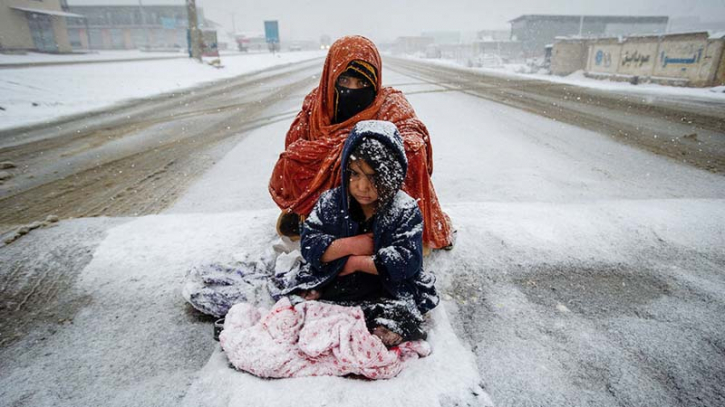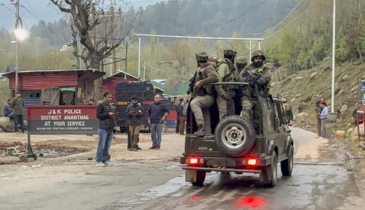Millions of Afghans go hungry as winter cold bites

Khurma had to borrow her neighbour's shoes to walk to Pul-e Alam city to collect a cash handout being given to the growing number of vulnerable Afghans who are struggling to survive the winter.
The 45-year-old widow waited in her threadbare blue burqa to receive 3,200 Afghanis ($45) from the UN World Food Programme (WFP) in the eastern Afghan city, where temperatures can drop well below freezing.
"We are desperate," the mother-of-six told AFP. "When we can't find any bread, we go to bed on an empty stomach."
She is one of millions facing months of hunger and cold, with natural disasters and displacement putting more Afghans at risk even as funding to one of the world's poorest countries -- wracked by decades of war -- has plummeted.
"Things were already quite catastrophic" in Afghanistan, said Caroline Gluck, spokesperson for the UN refugee agency, UNHCR. "But as winter starts we have two massive emergencies."
Thousands of people are still sleeping in tents in Herat province after successive earthquakes in October destroyed or rendered uninhabitable 31,000 homes.
And around half a million Afghans fleeing deportation from Pakistan have returned in recent months to a country where unemployment is rife, "at the worst possible time of the year", Gluck said.
Rabbani, 32, is one of them. As a refugee, he is entitled to WFP aid: 50 kilograms (110 pounds) of flour, six kilograms of red beans, five litres of oil and 450 grams of salt. But, "there is no work here", he said.
When freezing temperatures set in, his family of seven abandoned the tent they had occupied since crossing from Pakistan for a shack.
"When there is nothing left to eat, death is better than begging."
.png)









